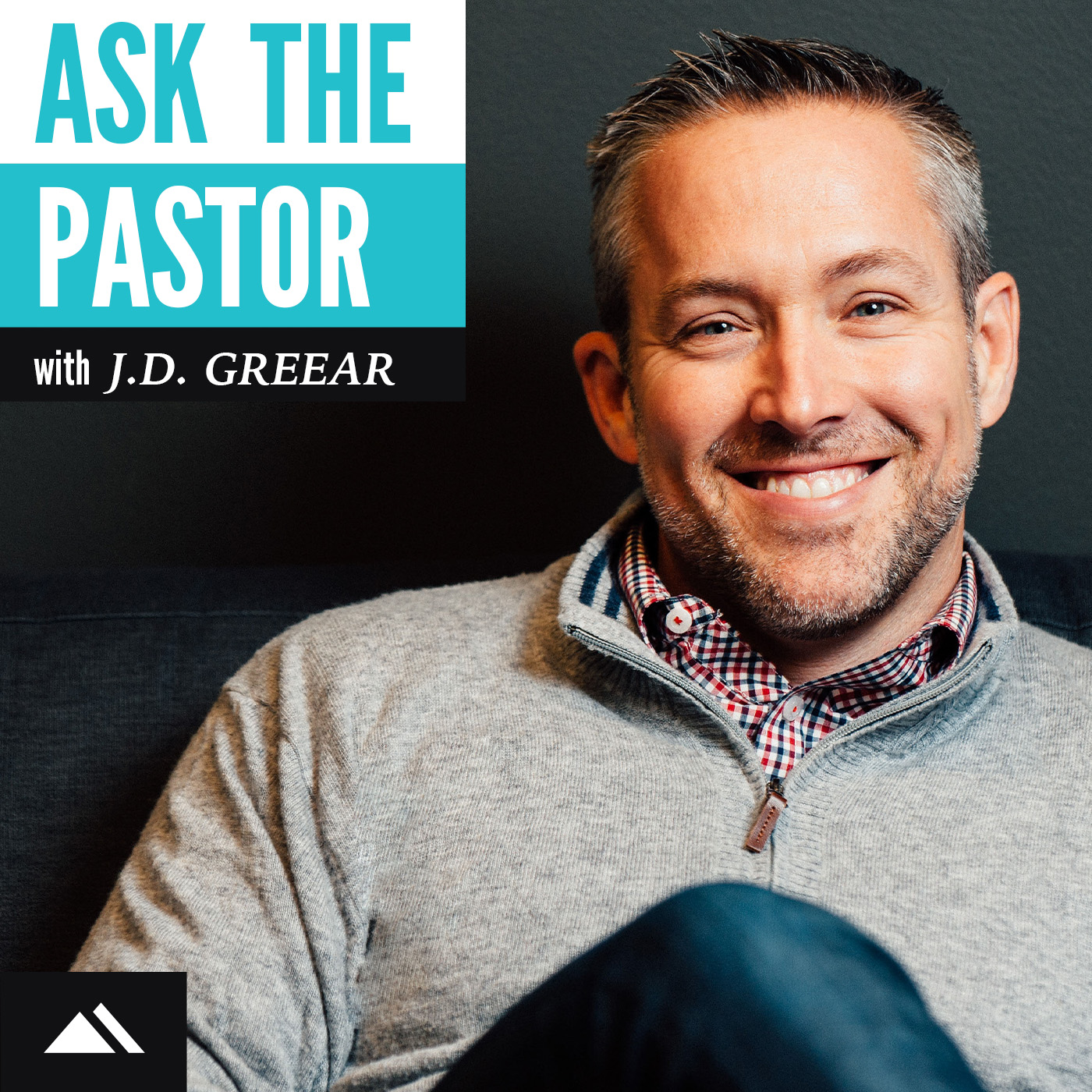

Ask the Pastor with J.D. Greear
J.D. Greear
Ask the Pastor with J.D. Greear is a weekly podcast that answers tough questions and tackles relevant issues in a way that is filled with grace, understanding, and wisdom from God’s Word. Hosted by Matt Love.
Episodes
Mentioned books

Apr 3, 2023 • 7min
Should Evangelicals Participate in Lent?
This week, Pastor J.D. answers the question, "Should Evangelicals Participate in Lent?"

Mar 27, 2023 • 12min
How Do We Know If Revival is Real?
This week, listen in to Pastor J.D.’s thoughts on revival that he shared at a recent Summit Church staff meeting.

Mar 20, 2023 • 14min
What Is the Difference Between Being Religious and Being Spiritual?
This week, Pastor J.D. finishes the Ask Me Anything series based on his new book, "Essential Christianity." The final question is, "What is the difference between being religious and being spiritual?"

Mar 13, 2023 • 12min
Is Downplaying the Sinfulness of Homosexuality Necessary to Reach the Next Generation?
This week, Pastor J.D. continues our Ask Me Anything series based on his new book, "Essential Christianity." The fifth question is, "Is downplaying the sinfulness of homosexuality necessary to reach the next generation?"

Mar 6, 2023 • 11min
Can Anyone Actually Know They Will Go to Heaven?
This week, Pastor J.D. continues our Ask Me Anything series based on his new book, "Essential Christianity." The fourth question is, "Can anyone actually know they will go to heaven?"

Feb 27, 2023 • 8min
If God Is Real, Why Doesn’t Everybody Believe in Him?
This week, Pastor J.D. continues our Ask Me Anything series based on his new book, Essential Christianity. The third question is, "If God is real, why doesn't everybody believe in him?"

Feb 20, 2023 • 13min
How Do We Even Know There’s a God?
This week, Pastor J.D. continues our Ask Me Anything series based on his new book, Essential Christianity. This week: "How Do We Even Know There's a God?"

Feb 13, 2023 • 9min
What Is Christianity, In a Sentence?
This week, Pastor J.D. begins a new Ask Me Anything series based on his new book, Essential Christianity. First up: "What Is Christianity, In a Sentence?"

Feb 6, 2023 • 14min
Should Christians Watch Game of Thrones? (Or Anything With Nudity?)
This week, Pastor J.D. answers the question, "Should Christians watch Game of Thrones? (or anything with nudity?)"

Jan 30, 2023 • 10min
What Does It Mean Practically to Follow Jesus?
This week, listen into one of Pastor J.D.’s recent sermons as he answers the question, "What Does It Mean Practically to Follow Jesus?"


